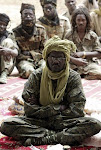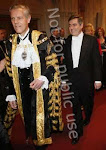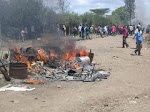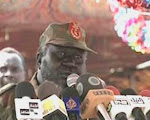Today is supposed to be the last day of the 5th national and housing census in the country. Reports that have been received from various regions and areas in the Sudan have been but minimal given the importance of the census. Abyei, Bahr Al Ghazal, Equatoria, Upper Nile and others regions like Darfur have faced setbacks in terms of census success. In Abyei there is fighting going on between the SPLA and the Misseriya tribe. In Bahr Al Ghzal fighting was reported in Rumbek between the people of Lakes and Warrap States. In Equatoria most census forms were reported to be in the Arabic language version whereas the majority of the people there read and write in English; and in other areas like Malakal the opposite as in the case of Equatoria was true. In Darfur, the rebels had warned that they would arrest any census official should s/he dare to enter their areas of control and thus making difficult the entry of census officials into some areas in Darfur.
However, it is the understanding of this author that all did go well despite the difficulties faced by the census officials. There is a need to talk about the importance of the census at least for the benefit of the reader. The census as per this author's vision and understanding is an exercise in which a state or nation undertakes a physical but "official count of (its) population", Collins Paperback (2000:91).
The success of the census work, however, is supposed to help in ensuring the accurate budgeting for service delivery countrywide. The budget each state within the Sudan gets from the federal government will be based on the population of each state. Without census, however, some smaller states may suffer the consequences of estimation. The federal government could simply give a bigger budget to some smaller states and the larger states suffer as a result. Services like health and education, for example, will become unavailable because the federal government may not be able to give accurate estimates of the populations in the states to the ministry of finance and national economy for budgeting. Census is also supposed to reflect the true diversity any country is enjoying, so to speak.
This author was not an exception from those that are supposed to be enumerated. He was visited by the census officials on April 27th, 2008. After the enumerator completed her work he seized the opportunity to ask her the difficulties she personally was facing. This author could not ask why the questions for ethnicity and religion were omitted or ignored because they were clarified by the Vice-President of the republic when he addressed the press to response to GoSS' announcement to boycott the census.
In response to the question asked, the census official, who was a gentle lady from this author's residential area, Kalakla, Ihklas Sa'ad Rahamtallah, said she faced no problems at all except one, which she said was major. Ms. Rahamtallah said women had a serious problem of telling their real ages. She said a woman would say that she is 48 years old. But when you ask the age of her son, he would say 38 years old. Rahamtallah said sometimes you wonder if the 48-year-old mum did give birth to her son when she was 10 years old!
This author also noticed something from the census form: the question on the origin and place of birth. These two were important in the sense that the official census forms in which they were recorded would still clearly identify the enumerated person as from a particular area even though his/her tribe, religion and ethnicity were not recorded.
While the country looks forward for the next population census to come, this author would like to register some of his personal disappointments on the whole exercise of the census. First of all the areas and regions that have made it difficult for the census officials to carry out their work successfully should have themselves to blame should their budgets be based on estimates and not on actual figures of their populations.
On the issue of ethnicity, religion and tribe were omitted from the census forms, this author finds them extremely useful for the country to ignore. Before discussing the seriousness of this omission, it is good to clarify the difference between ethnicity and tribe.
An ethnic group – take the Bantu group as an example. There are Bantus in Somalia, Kenya, Tanzania, Uganda, Burundi, Rwanda, Congo, Southern, Western and Central Africa, including the Sudan. These are tribes with names like Kikuyu in Kenya, Waganda in Uganda and Azande in Sudan but put them together, they form one huge ethnic group known as the Bantu. Another example is the Semitic ethnic group of people. This group brings together the Arabs and their arch rival, the Jews, in one ethnic group. The Arabs in the Sudan are Semites but that does not make them Jews.
On religion, some Northern Sudanese had, sometimes back, said that the Christians in South Sudan were 15%, animists 20% and Muslims 65%. This statistics are obviously not correct and they can never be corrected by anybody other than census officials. Muslims in the country are put at 75% and this too cannot be officially verified unless it is done in a census exercise.
If the ethnic groups and religions are not known in the Sudan, how are we going to call ourselves as Sudanese in diversity? Are we going to say that Muslims are 75% and therefore the entire country is Muslim and thus has no religious diversity? Or we say that the entire country has no ethnic and religious diversity and thus making the Sudanese people animists and non-religious, what about their cultures?
It would be good for the authorities in the country to take the omission of ethnicity, tribe and religion as an oversight and seriously make sure that it does not happen in the next census. This country's beauty is in its diversity and that diversity, be it tribal, ethnic and/or religious has to be reflected in official documents like census forms. Otherwise, the Sudanese people cannot be a proud people when their cultures which are strengthened by the presence of ethnicity, tribe and religion are deliberately made to vanish by none other than Sudan's own sons and daughters.
Tuesday, April 29, 2008
Census is Supposed to Reflect the True Diversity of Any Country
Subscribe to:
Post Comments (Atom)







No comments:
Post a Comment